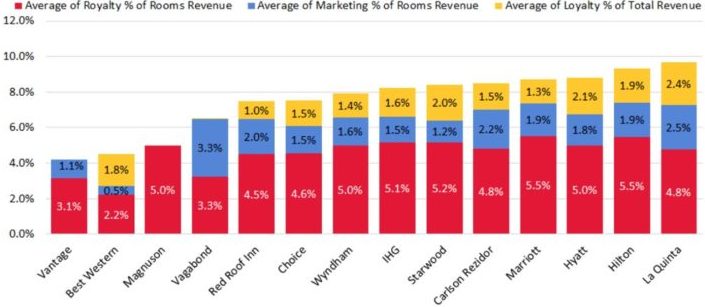In addition to the hotel operator's base management fee, other issues affecting a hotel's operational performance include:
- Incentive fee – Typically based on adjusted GOP, calculated by deducting the base management fee from the GOP, net operating profit (NOP) after deduction of some or all fixed charges, or NOP after deduction of some or all fixed charges and an owner’s priority return;
- Profit guarantee – The guarantee of a hotel operator of a minimum level of profitability to the business owner as compensation for any shortfall, commonly subject to an annual and aggregate cap and clawback when the profits rise again;
- Key money – An upfront payment made by the operator of a newly built or converted hotel to the owner for entering into the operating agreement, to secure the owner’s initial investment in the property; and
- Owner’s priority return – Deferral of incentive fees to the owner’s debt service such that the incentive fee is not paid if there is insufficient profit to pay the interest on the loan to the owner.
If strong hotel performance is projected, operators may accept a mechanism to reduce or scale down their base management fees in the early years of hotel operation. They may also accept incentive fee deferral until profitability reaches a certain threshold or the owner's minimum return requirements are met, typically relative to debt service (DSCR).


Approval clauses in operating agreements establish when owner consent is required for decisions affecting hotel operation, allowing the business owners to be involved in decisions that affect cash flow and cost transparency. They typically include budget, employment of management, outsourcing, capital expenditure, leases, and concessions.
Hotel companies and operators implement sustainable practices while increasing profitability. Hotels are designed according to sustainability principles to provide a favorable environment for guests and staff, run at optimal efficiency, and reduce operational cost, for the benefit of all stakeholders.

